With quarantine in no sight of ending and the summer sun beating down, we’re all in the mood for a little adventure. Carter had the pleasure of catching up with Patrick Creadon, director of SKI BUM: THE WARREN MILLER STORY, which took home the 2019 Slamdance Audience Award for Beyond Feature. We chatted about the making of the film, Patrick’s time with the prodigious titular figure, a prolific sports filmmaker and pioneer of the ski industry, and why we could all use a little Warren Miller in our lives right now.
I was wondering if you could tell us about your own relationship to skiing and to Warren Miller’s films and how that ultimately led you to making SKI BUM.
Patrick Creadon: Yeah, that’s a great question. I grew up in Chicago, so from a skiing perspective I was geographically challenged. But I used to ski, you know, once or twice a year with friends. We’d go up to Michigan or Wisconsin—Upper Michigan. And there were some family friends of ours who were really good skiers and really good winter sports people… I remember going up to their winter cabin on a ski trip and they had a whole stack of Warren Miller videos and, you know, I thought that was really cool. And we watched some of those and it was a lot of fun.
It’s interesting ‘cause years later, when our first film came out—we did a movie called WORDPLAY in 2006—and we had a big nationwide theatrical release, it played in 500 movie theaters that summer. And I started watching the box office results really closely, and I used to look at Box Office Mojo almost everyday. And I kept seeing the initials W.M. all over like, the top hundred documentaries. I’m like, “What in the hell is W.M.?” And I realized that that was Warren Miller, and Warren’s movies at the time—I think he had nine documentaries—nine of his ski films were in the top 100 of all documentaries ever released in theaters…
Warren actually—before this project came along — he actually made a much bigger impression on me as a filmmaker than as a skiing filmmaker, if that makes sense. You know, his content—if you will—and the stories he told, I’m gonna be honest, they’re interesting to me and his movies are fun to watch, but I’m not a Warren Miller fan, you know? There’s millions of those. I would not fit myself into that category. I am a filmmaking fan, and I’m a filmmaker and his accomplishments as a distributor were really what I found incredibly impressive.
And so lo and behold, you know, 10 or 12 years later we get a call from a good friend of ours, a guy named Jeff Conroy—he’s an incredibly successful television producer, he produced a show called DEADLIEST CATCH among other things, which I think is an amazing show. And Jeff has been approached to tell the Warren Miller story. But he said, you know, “Look, I’ll be honest, I know a lot about TV. I don’t know a lot about making films. That’s sort of a lot of—that’s a different arena, if you will. Would you guys be interested in partnering up with me?” I said absolutely, sounds like a great story. So that’s my connection to Warren Miller. I came to really love his work and I love his movies and they’re really, they’re really fun. And for skiers he’s incredibly influential and for the ski industry he’s been incredibly influential.
It turns out that there’s a really interesting—like geographically, we’re in exactly the right place to tell this story. Because Warren Miller was raised in Los Feliz. He moved around a little bit, but he lived for a long time in Los Feliz, as did Walt Disney. And Warren Miller was Walt Disney’s paperboy when he was a kid.
Interesting.
PC: …and Walt Disney’s first office was at the end of our block on Kingswell Avenue. It’s kind of a small world. But the reason I point that out is I think Walt Disney might’ve been the biggest influence on Warren in the early days because he was his paperboy. He dropped papers at Walt Disney’s house every day. He knew all about him, this was in the 30s. And Walt Disney was becoming world famous at the time. And what’s really interesting is if you look at Walt Disney’s autograph, it’s almost identical to Warren’s. Warren kind of swiped his autograph, from the Ws, the swishing W. And Warren was also an animator, you see that in the film. He draws Ski Bum, and he creates the idea. The whole idea of a Ski Bum was created by Warren. It was like a self-portrait. So anyway, enough on that. So we live a few blocks from where Warren grew up and so his kids were actually really psyched when he told them about where we lived and that we were in the neighborhood, so that was kind of fun.
Absolutely. Something I was struck by was just what an impressive DIY filmmaker Warren was, that really blew me away. And I was wondering, do you think that somebody today could distribute a movie the same way he was able to? To take it on the road like that, to be a one-man-band in the same way he was? Or is it just not possible these days?
PC: I mean, I think anything’s possible. Obviously during COVID, it’s, there’s—we’ve all hit the pause button. But it’s funny because I think of Warren as—he’s kind of a hybrid. He’s obviously a filmmaker, but like a band, he travels from town to town with his act. And for years, for decades, he would only do one show a night in a city. In fact, he had a rule. His rule was as he was traveling across the country, he did a hundred nights a year with his movies and then immediately after the theatrical run wrapped up he would be on location shooting his next film. It was kind of insane what he did. He’d go home for two days, he wasn’t home a lot. That was probably a little hard, I think, on his family.
But he had a rule, which was when I get to a certain region in the country I’m never gonna play two nights in a row less than 30 miles away from the previous night. So if he’s in Los Angeles, he’s not gonna play Anaheim the next night. He’s gonna play San Diego. Then he might do Anaheim the night after. Because the thinking was, “I need to sell as many tickets as I can, and so I want to come to people’s neighborhoods with the movie and not force my audience to travel too far. In fact, I’d rather build up demand in that other marketplace and just do a show there like three or four nights later”… He’s an entrepreneurial artist and I think the idea of him travelling town to town—that model that the music industry works with is kind of like him. But instead of coming into town and doing a set, he would show his movie, head on down the road again. Crazy.
He was really funny and his audience loved him, kind of charming, good sense of humor. He was also very much a loner, he spent a lot of time on the road alone, especially in the early days. Later on, you know, the business started to build up around him and he had some other—he made some partners and stuff so he wasn’t doing it all by himself. But in the early days, probably for easily the first 10 or 15 years, he was literally just by himself and trying to support a family. And it’s kind of remarkable. I admire his work ethic.
Absolutely. I really did, as well. You had mentioned this earlier about the producer who approached you to make this film, but I was really curious how you got Warren and the family to agree to participate in the documentary and how you got access to all the incredible footage within the documentary.
PC: So, the idea for the film started with a guy named Joe Berry. And he’s the other producer on the film. He’s sort of actually an executive producer but I think his credit was producer. But it was Joe’s idea. And Joe had gotten to know Warren Miller over the years because his family have a house in Yellowstone Club. And that’s where Warren retired, spent his final 20 years as the ambassador of skiing at the Yellowstone Club. So Joe knew Warren and vice versa, and Joe has been involved in lots of other documentary films like SENNA… But Joe and his friends at the Yellowstone Club love Warren, really admire him. You know, at the time he was 92 years old, when we started making the film. So I think the feeling was, “How come no one’s ever made a movie about Warren and what he did? How has that not happened?” And they just—literally, they just passed the hat around the Yellowstone Club. I don’t know how many investors, maybe 40 or 50 and people threw in, you know, 20 grand or something. I don’t really know the specifics, nor does it really matter, but they raised around a million dollars to make the film. And that’s when Joe reached out to Jeff Conroy. Jeff’s a big skier, loves Warren Miller, this is amazing. Why don’t we go find a good filmmaking team—a documentary filmmaking team? And that’s how it came to us.
So by the time we met Warren, he already had a relationship with Joe. He felt confident that Joe would bring a good team to the project and that was it. And we did something which I think ended up being incredibly helpful. In fact I don’t know how we would’ve done the movie without it, but I’m a big fan of Errol Morris and I really loved the movie THE FOG OF WAR.
Yeah, me too.
PC: And I had read somewhere that, you know, I thought that interview with Robert McNamara is really extraordinary and just the range of emotions and the history they cover in that one interview. Well it turns out that interview was shot over four days. And he asked Robert McNamara just, “We’re gonna do an interview and if we get tired we’ll stop and you know, I’d like you to come back the next day, and I would like you to come back the next day and I’d like you to come back the next day.” Apparently it was shot over four days.
I definitely come from a vérité documentary background. You know, I don’t ask people to wear certain clothes, I like to be a fly on the wall and capture things… But with Warren—92 years old, health isn’t great—we kind of adapted the Errol Morris approach, which is you know, “Shit we gotta, you know, we got 90 years to cover in an interview.” I mean, we’re not gonna get that in one day. And so we did the same thing, we did a nice big camera set up in his living room and just left it there for three days. Shoot for an hour and would take a break. We’d shoot for another hour and take a break. And we did that over the course of three days. Also, the thing that’s great about that approach is Warren’s energy was up. As soon as he started to get tired, we would step down, you know, he’d take a nap for an hour, come back, have a peanut butter sandwich, come back—whatever. But by doing it that way his energy is great… I think Warren looks incredible in his interview, and I think his family and his friends are appreciative that he just looks good, you know? Because you know, he looks strong and confident and he looks like he’s enjoying doing this. So I think that’s important. I think if I had done more of a vérité approach, that would’ve been a very different film. But I got a master interview kind of the way FOG OF WAR was done. I thought that was appropriate for this story and I’m glad we went that route.
Yeah, I totally agree it works out much better that way. I’m wondering, when you were talking to Warren at such a late stage in his life, did you feel like he still had that Ski Bum energy at heart?
PC: Yeah, I think Warren was a Ski Bum until the day he died. He had that work ethic and he had that sense of adventure and he loved the great outdoors, he loved storytelling. And that never really changed. Even though he wasn’t making films in his final years, he certainly was excited by filmmaking and storytelling. In fact, one of my favorite things in the movie is right when we first meet him, and he walks onto the set, the first thing he says is, “Wow that’s a great looking tripod.”
Yeah I loved that, I thought that was so charming.
PC: I love it. Because you know, like, here’s a 92-year-old guy, his health is not great, he’s got all these strangers in his house, but he’s actually excited about our gear. And he wanted to talk about that and this is a big-budget production. I just kind of love that, you know? And that—I don’t normally do that, I don’t normally leave that sort of behind-the-scenes stuff in, but with Warren, that was just so charming, you know? You almost, you kind of learn a lot about them in that first moment.
That’s what I was gonna say, I thought that was a great way to establish character in the beginning.
PC: Yeah exactly… it’s funny because I definitely think about Warren all the time now. I mean, you know, I’m a filmmaker, that’s how I make a living. I have three children just like Warren did. I think that Warren would probably be the first person to say that finding a good balance between his work and his personal life and his family life was challenging for him. That doesn’t make him a bad person. I mean, he tried to find the right balance between supporting his family through his work and being at home and being a good dad and I think that, in general, this industry—film and television—you know, can put a lot of pressures on people and their family life and their personal life. And so I do think, I mean I certainly don’t want to put any words into Warren’s mouth, but my sense is—my sense is that he probably had very few regrets as a filmmaker. At the same time, I think he probably—he probably might make some different choices as a father if he had a chance to go around again. I sense that because I think that he is a very, very extreme example of someone whose personal life and work-life balance was complicated. In fact, his son ended up buying his company. And that was a whole other series of challenges. You know, that wasn’t easy either. Frankly, that was—it was hard for him to walk away.
Yeah, I think the thing I wanted to end on was I really liked the skate park that he helps to build at the end of the film. That was a really touching thing and I really liked the quote about sort of doing something not for the credit or your own gratification. Because to me, that kind of reflects his impact on the culture of skiing, as a whole. Like, he obviously made money off of this whole thing, but like, when I sort of look at how much he made the entire industry what it is today, there’s no amount of money you could credit him with for the impact that he had. In general it seemed to me, watching the film, that he didn’t have a ton of ego about his impact. Is that something you would agree on?
PC: That’s a good point. I think that Warren was very quietly proud of what he had created, but also, you know, what he created was, you know, a film company that celebrated skiing and celebrated winter sports and celebrated the great beauty of our country and beyond… But in doing all that this industry grew up around him. The skiing industry, which is a huge industry when you think about the resorts and all the land that’s developed and the whole lifestyle. I don’t think anyone in the world had a bigger influence on the skiing community in North America than Warren Miller. His business and the skiing industry kind of grew up side-by-side. And one of them fed the other. And Warren obviously knew that and I think Warren was proud of that—proud to play that role of kind of being the Johnny Appleseed of skiing.
But he was a very—it’s funny, despite all that he was not a materialistic person, you know? He was happy to have enough money to keep the lights on at his business. He really wasn’t—in fact, I don’t know that he would think of himself as such a great businessman. In fact, when his son took over the business, I think his son was less of a filmmaker and more of a businessman and they really did grow the company and they did all these promotions and they were just sales people, they were good marketers. But to be honest with you, I think the philosophy shifted a little bit and it became more of a business and it became less of an artistic endeavor. And that’s, again, that’s not good or bad, it’s just that Warren—Warren loved—he loved travelling and he loved skiing and he loved the great outdoors and he loved telling stories. Warren didn’t need to make tons and tons of money, he just needed to support himself and to support his family and that’s what he did. And so I think he’s proud of his accomplishments.
I think he probably—he probably—you know, the term show business is kind of funny. Warren was really more about the show. And I think his son and the company in later years kind of became more about the business of it. And that’s fine, that’s just part of the evolution of a company. But you know, Warren’s place in our culture, he’s cemented. And now I think, in part, because of our film, we have the ability to reach beyond the ski community and reach into a larger community, a larger general population so people can finally really learn about his remarkable life and what he was able to do. And that’s why I love documentaries, that’s why it’s fun to do what we do. There’s only—you know, a guy like Warren Miller doesn’t come around very often. So his story is one that I think—it’s really universal whether you’re a skier or not.
You know, as somebody who—it’s funny, I grew up in Colorado, but I’ve never been skiing and I don’t know much about skiing at all. It was a really delightful experience to discover the story about him.
PC: Oh, that’s good to know. You know, it’s funny ‘cause you’re kind of—you’re an interesting audience member for us in that sense because Ski Bums are gonna love it. I mean, what’s there not to love? It’s all about the evolution of skiing and all these great skiers—blah, blah, blah. But you know, as is true with all the films that we’ve made, we tend to find stories that have a really intense core audience and then go make a movie for everyone else… if you’re a Ski Bum or if you’re a professional skier or if your whole life you live and breathe skiing, I think you’ll enjoy our film, but we didn’t make our movie for that crowd. We always make our movies for—we want to go beyond the niche and go beyond the hardcore audience and there’s an interesting challenge there. Like, if you do it right, you kind of make everybody happy.
You know—it’s a weird time to release a movie and it’s kind of a weird time to release a ski movie, frankly, in the middle of summer. But in a way, like, I think the world needs Warren Miller right now, I really do. And not to sound schmaltzy—I mean, we’re all cooped up in our apartments and our homes and we miss going out on adventures, we miss the great outdoors. And that’s gonna happen again. We’re gonna get back to that. And the story of Warren Miller is a reminder of how much we have to be grateful for. Especially in our country, the beauty and the grandeur and the sense of adventure to throw yourself in the car and just go drive for four hours, see where you end up. That is who Warren Miller was. That is what made him tick. And the funny thing about it is, I think that this movie really matters right now. It really does. I’m not just saying that. And I think once this initial phase of the release is done, which will be about 90 days on iTunes. You know, once that concludes—that wraps up around October 1st, which is historically around the beginning of ski season, and that’s when the movie will be more widely available. You know, i don’t know where it’ll end up but it’ll be a little more of a mainstream release. You know, iTunes releases oftentimes are not on people’s radars, but three months from now, I think once we prime the pump a little bit, I think there’ll be good awareness around the film and it’ll be just in time for ski season.
It’s a great watch. I think it’s fun for skiers and non-skiers alike and it’s a wonderful escape in the dead of summer.
SKI BUM is currently available to watch on Prime Video, Apple, YouTube, Google Play, Vudu, and Microsoft.
This interview was transcribed by Ben Pham.


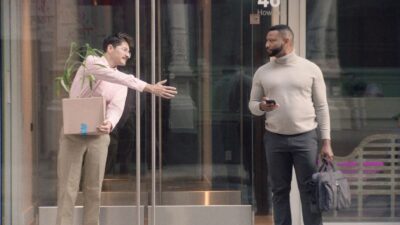
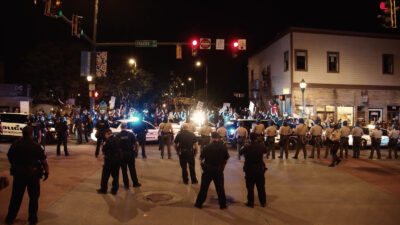


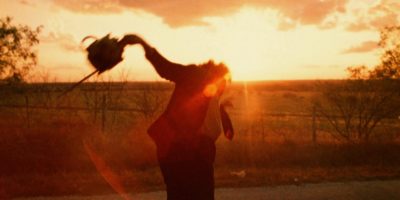
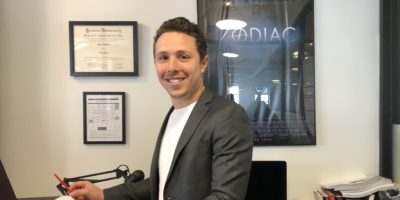
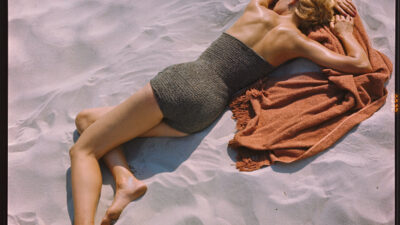


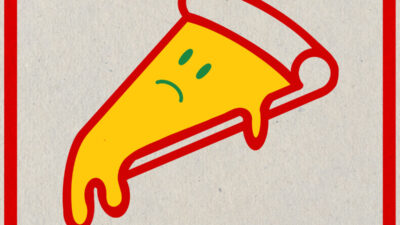
Comments